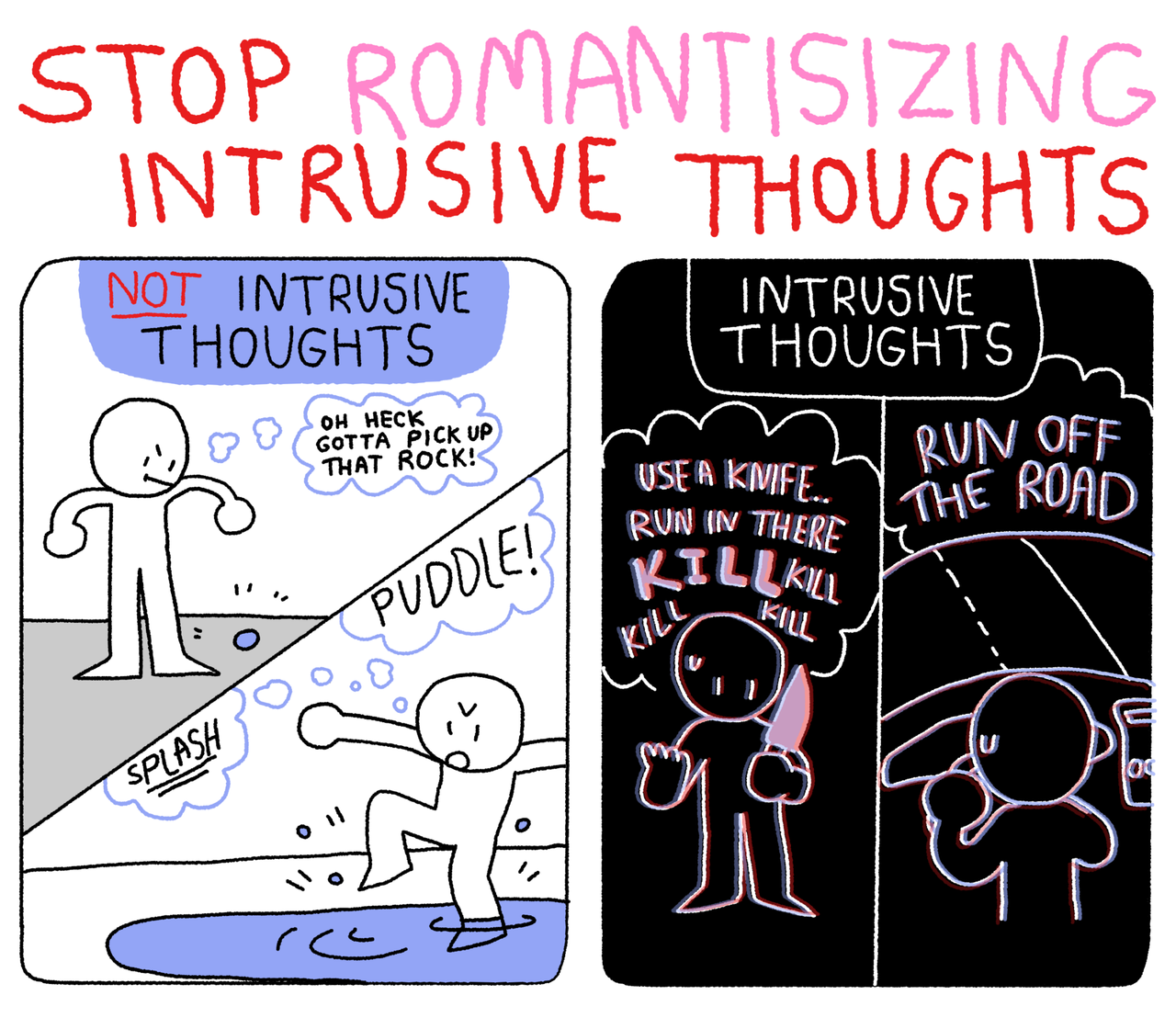
Don’t lose sight of who you are because of intrusive thoughts. Watch movies you enjoy, spend time with friends, walk your dog, travel, whatever it is you enjoy, and do those things.

Do what is necessary to keep in touch with yourself. If you don’t believe in yourself, you can begin to believe in your intrusive thoughts. You know who you are and what you believe. Do not allow your thoughts to make you doubt yourself. Have thought, let it pass, and continue what you were doing. Again, by changing things in your life that you normally do, you are giving these intrusive thoughts unnecessary power. If you know at your core that you love animals and you do not want to hurt them, listen to that part of yourself. For example, if you are having intrusive thoughts about hurting animals, but love animals, do not start avoiding animals. Do not begin to change your behaviors.Call up your best friend and say “hey, I’m having these disturbing thoughts and I’m worried.” Talking things out with people you trust can also provide insight into what about the thoughts are so distressing or even where they could be emerging from. Do not be ashamed of your thoughts to the point where you’re hiding from them in your mind and your family and friends. Your reactions to your intrusive thoughts are key to how you cope with your thoughts. Acting on your thoughts is different than having them. Turn them into funny stories, laugh at how silly they could be. The moment you give control to your intrusive thoughts the harder it is to regain control.

Remember you are in control, not your thoughts. The more power you give your intrusive thoughts, the less control you have. Being fearful of your intrusive thoughts only gives them more power. If you don’t take the time and reflect on what it is about the intrusive thoughts that are disturbing or distressing you can not take the steps to begin to move past the thoughts. These intrusive thoughts go against core beliefs or values you may have and that also adds to why the thoughts can be so distressing. Whatever the thoughts are, they are bothering you for a reason because the content in the thoughts hits a nerve that deals with something in your life. Many people experience intrusive thoughts but how can we take control of our minds? While intrusive thoughts and obsessive thoughts can be linked they are not the same.

If you are concerned your intrusive thoughts are becoming obsessions seek consultation from your doctor because this is a sign of an underlying problem.įor more information about OCD visit. People with OCD may have symptoms of obsessions, compulsions, or both. Obsessive-Compulsive Disorder (OCD) is a common, chronic, and long-lasting disorder in which a person has uncontrollable, reoccurring thoughts (obsessions) and behaviors (compulsions) that he or she feels the urge to repeat over and over. This pattern of behavior is commonly seen in people who struggle with Obsessive-Compulsive Disorder (OCD).

The act that you do to rid your mind of obsessive thought is known as a compulsion. Many people who have obsessive thoughts develop ways to rid them of their mind. If you have obsessive thoughts, that is something to be concerned about. There is a difference between intrusive thoughts and obsessive thoughts. There is no known reason why intrusive thoughts occur but they are not signs of mental health disorder. These thoughts seem to appear out of the blue. Intrusive thoughts are undesired thoughts that you find disturbing and/or distressing. This is what is known as intrusive thoughts. The worst part about the thoughts is that they are not comforting but disturbing and unwanted. No matter what you do this thought continues to come into your mind. Have you ever been trying to decide what you wanted to do for dinner but another thought popped into your head? As you return your thoughts back to potential dinner options the thought comes back into your mind.


 0 kommentar(er)
0 kommentar(er)
